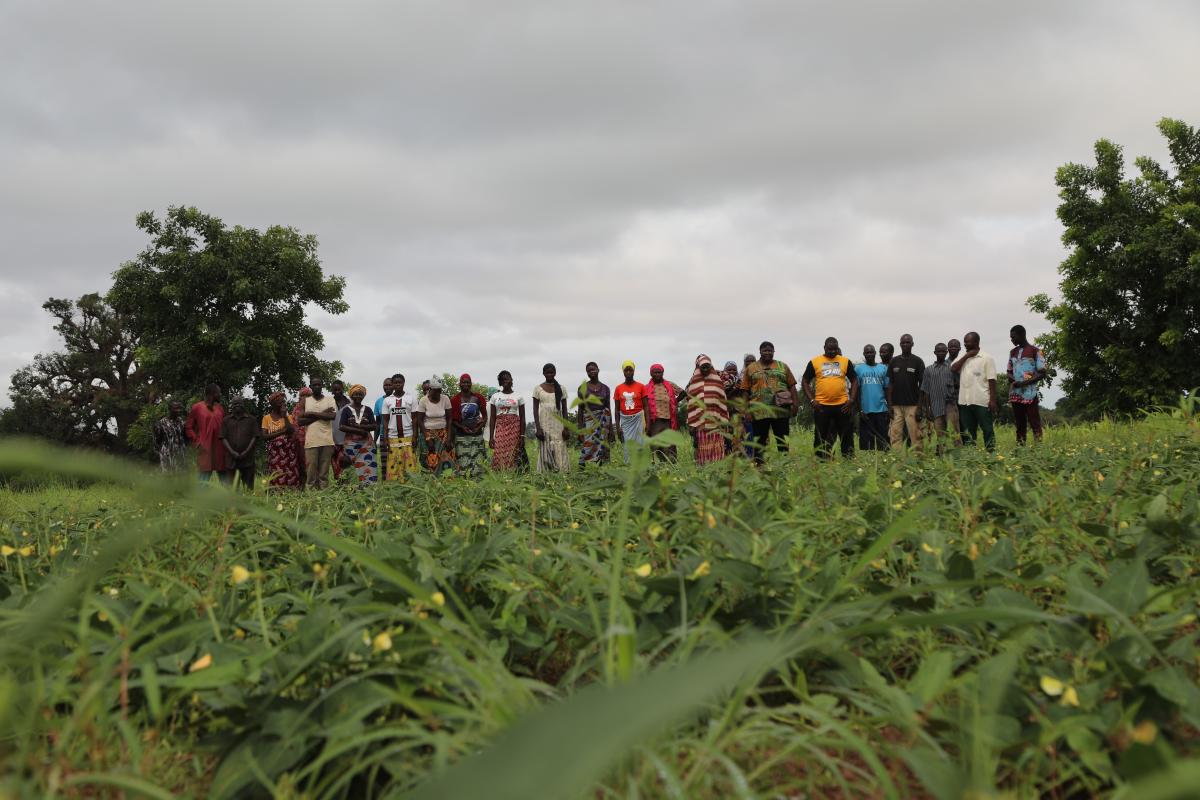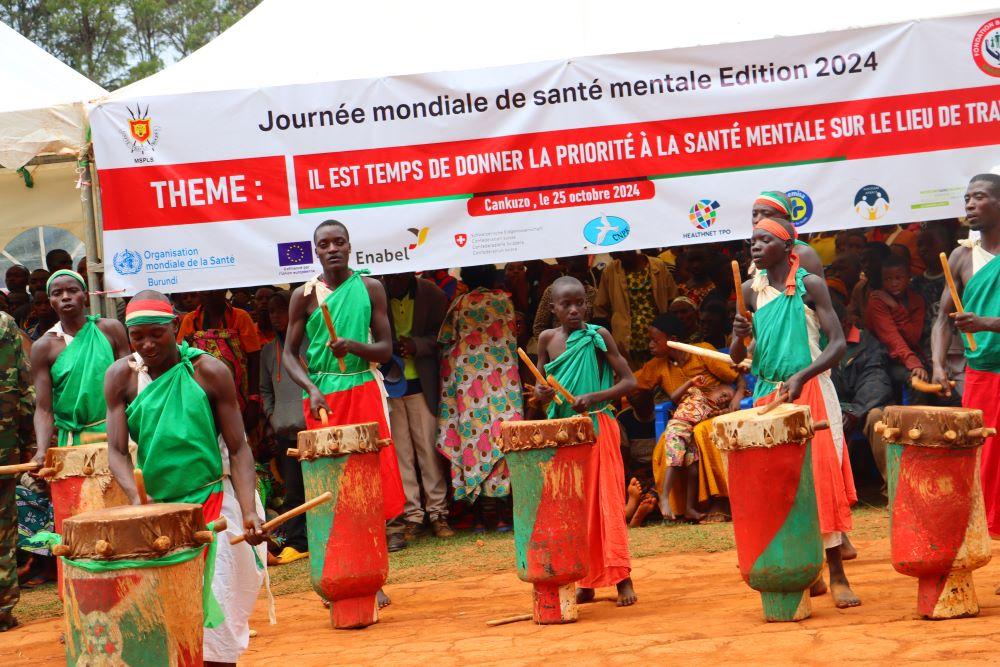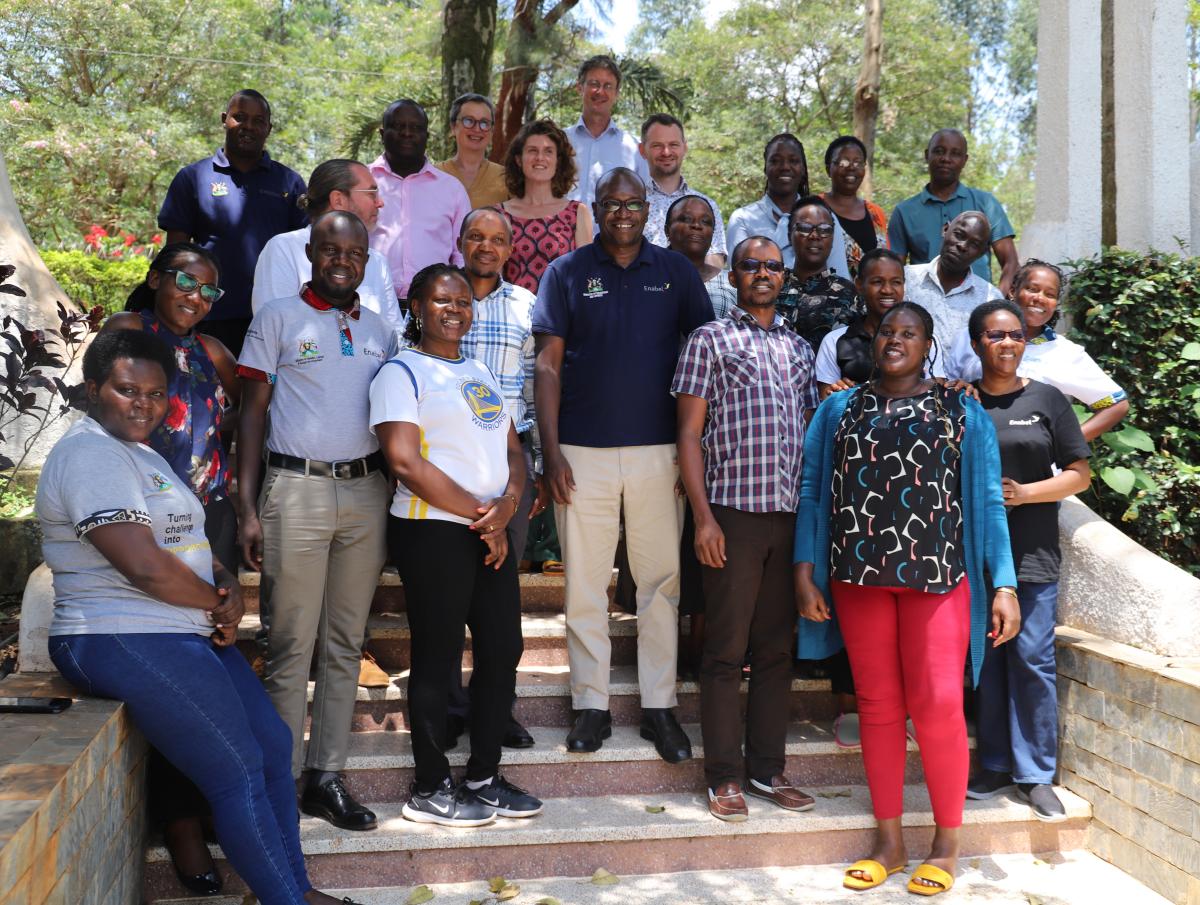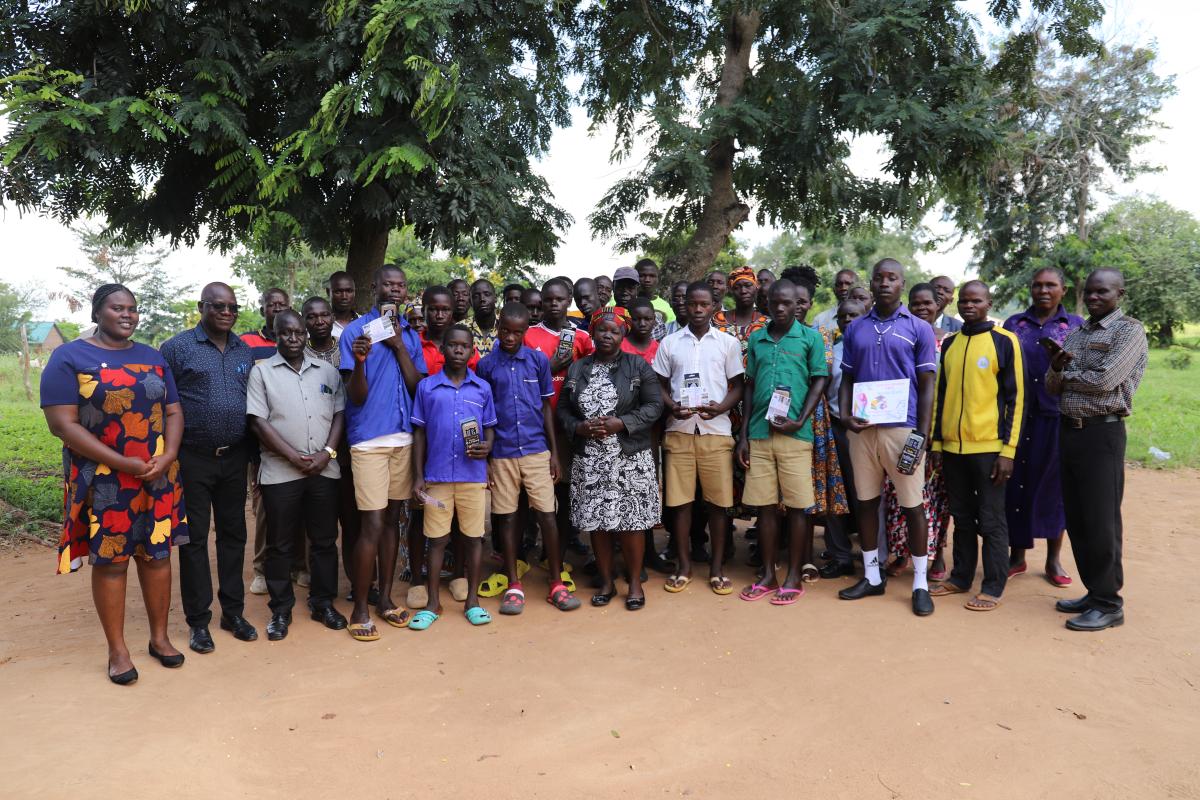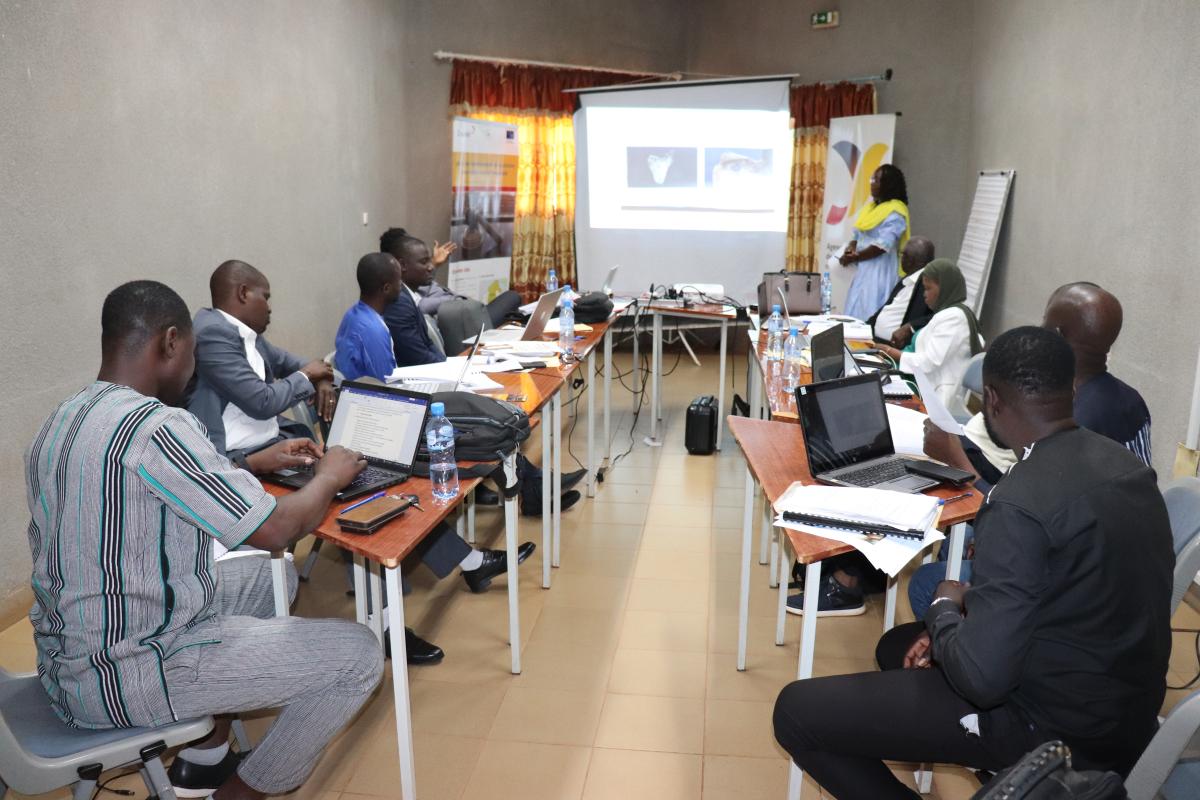Rechercher
Affichage de 45 à 60 sur 2520 actualités
-
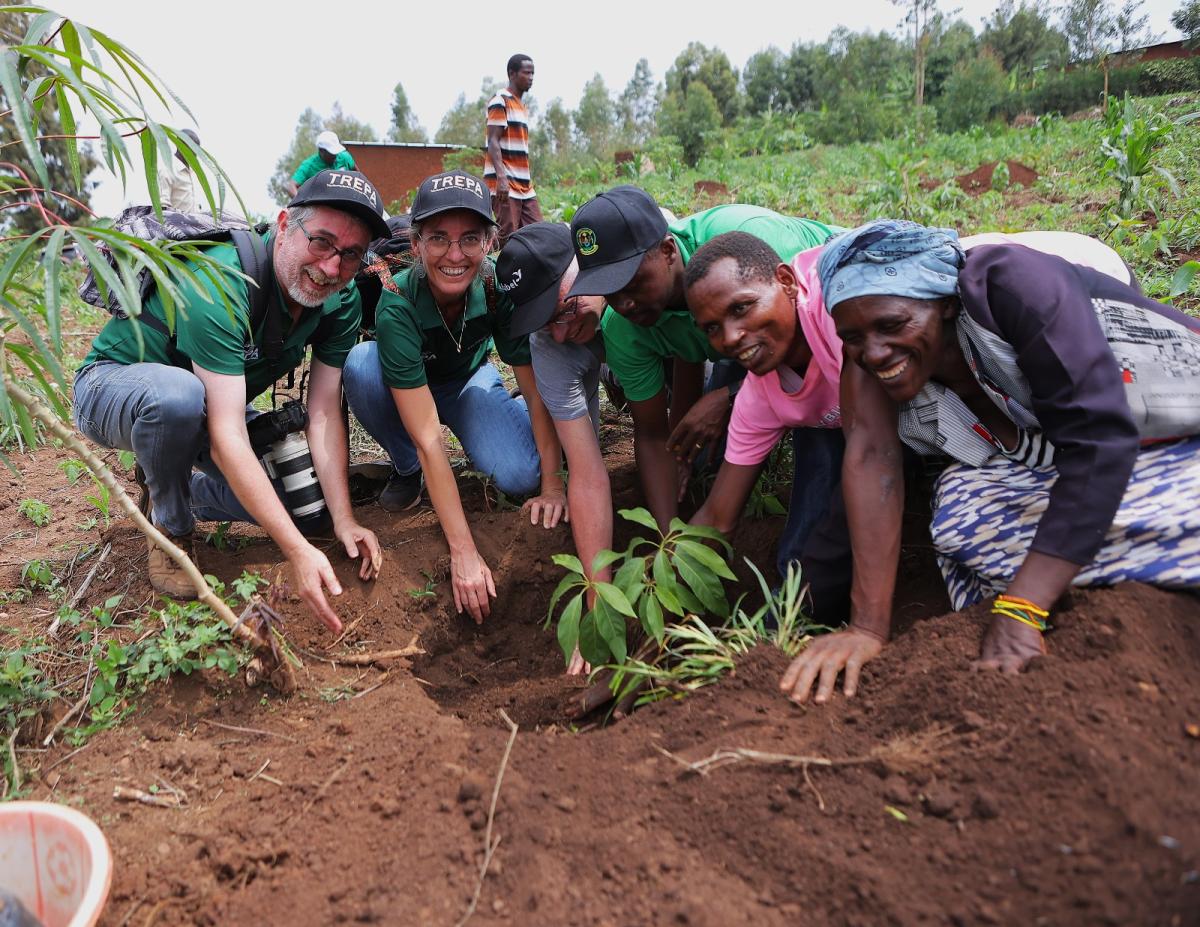
Rwanda: Enabel staff and community unite for National Tree Planting season 2024
Denise NSANGA | 01/11/2024
On Saturday, October 26, 2024, Enabel Rwanda proudly joined thousands of Rwandans in a mass tree-planting campaign to launch the National Tree Planting Season 2024, themed "Plant a Tree, Nurture It, Save the Planet!" The event took place in Kamamana Village, Rwamagana District, where participants planted 25,000 trees as part of a broader initiative to plant a total of 35,000 seedlings across 17 hectares during the fiscal year 2024-2025.This significant effort is part of the Transforming Eastern Province Through Adaptation (TREPA) project, aimed at restoring drought-prone landscapes into climate-resilient ecosystems. Funded by the Green Climate Fund, TREPA seeks to enhance the resilience of 75,000 smallholder farmers while restoring 60,000 hectares of degraded land through agroforestry, reforestation, and soil erosion control.The planting sites and seedlings were prepared in collaboration with IUCN Rwanda and local partners, highlighting the community's commitment to environmental conservation. The initiative transforms previously unproductive woodlots into productive forests, fostering a cooperative approach among local landowners through Private Forest Management Units (PFMUs).Environment Minister Valentine Uwamariya attended the launch, encouraging residents to cultivate a tree-planting culture and take responsibility for nurturing the newly planted trees. She emphasized the importance of safeguarding Rwanda’s forests for future generations.Through this initiative, Enabel and its partners aim to boost forest cover, combat climate change, protect water resources, and enhance local livelihoods, ultimately benefiting over 260,000 people in the Eastern Province.
-
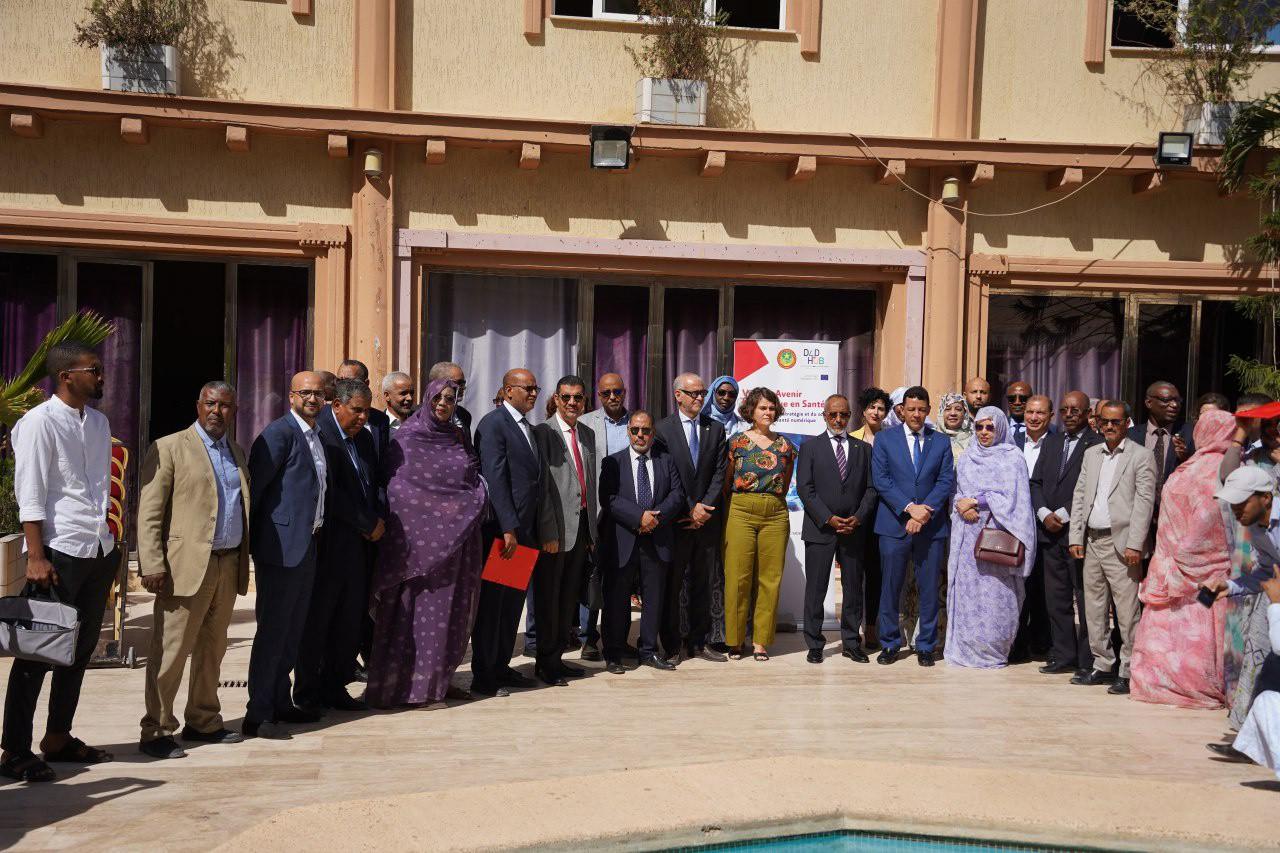
Vers un avenir numérique en santé: Validation de la stratégie et du plan d'action de la santé numérique en Mauritanie
Aminata KANE | 31/10/2024
Le 29 octobre, la Mauritanie a marqué une avancée stratégique avec le lancement de la Stratégie Nationale de e-Santé 2024-2030. Sous la supervision de Son Excellence le Ministre de la Santé, M. Abdellahi Sidi Mohamed Weddih, accompagné du Ministre de la Transformation Numérique et de la Modernisation de l'Administration, M. Ahmed Salem Bede Etvagha, l’atelier de présentation et de validation a rassemblé des acteurs clés pour renforcer la vision de la numérisation du secteur de la santé. Cet événement, organisé par la Direction de l'Informatique et de la Documentation en collaboration avec Enabel l'Agence belge de développement et de l’Union Européenne, partenaires essentiel dans ce projet. Une Vision pour l'Amélioration des Soins de Santé La Stratégie de e-Santé vise à transformer le secteur de la santé par l’intégration de solutions numériques pour offrir un accès équitable aux services de santé de qualité, étendre la couverture dans les zones reculées, et faciliter les consultations à distance via la télémédecine. Elle contribue également à la rationalisation des coûts et à une gestion optimisée des importations de médicaments et de l’approvisionnement des établissements de santé. L'Engagement des Autorités pour la Santé Digitale Dans son discours, le Ministre de la Santé a souligné l'importance cruciale de la santé numérique dans la politique publique du gouvernement, rappelant que la santé est un droit fondamental pour chaque citoyen. Le gouvernement a fait de la qualité des soins et de la couverture sanitaire universelle des priorités stratégiques. "La numérisation est un domaine vital pour garantir un meilleur accès aux soins, en particulier dans le contexte de l'ère numérique," a-t-il déclaré, soulignant que cette stratégie aura un impact positif majeur sur tous les aspects de l'administration et des services de santé en Mauritanie. Des Partenariats pour un Déploiement Réussi Le lancement a réuni des partenaires techniques et financiers, notamment l’Union Européenne et l’Organisation Mondiale de la Santé, ainsi que la Secrétaire générale du ministère, Mme El Alia Yahya Menkouss, et plusieurs responsables du secteur. Avec le soutien d'Enabel, cet atelier marque une étape décisive dans la transformation numérique du secteur de la santé, permettant au ministère de présenter une feuille de route pour moderniser les soins et les rendre accessibles à tous les citoyens mauritaniens. Cet événement de validation et d'adhésion collective des parties prenantes a posé les bases d'une mise en œuvre inclusive de la Stratégie de e-Santé en Mauritanie, en visant un avenir plus connecté et sain pour l'ensemble de la population.
-
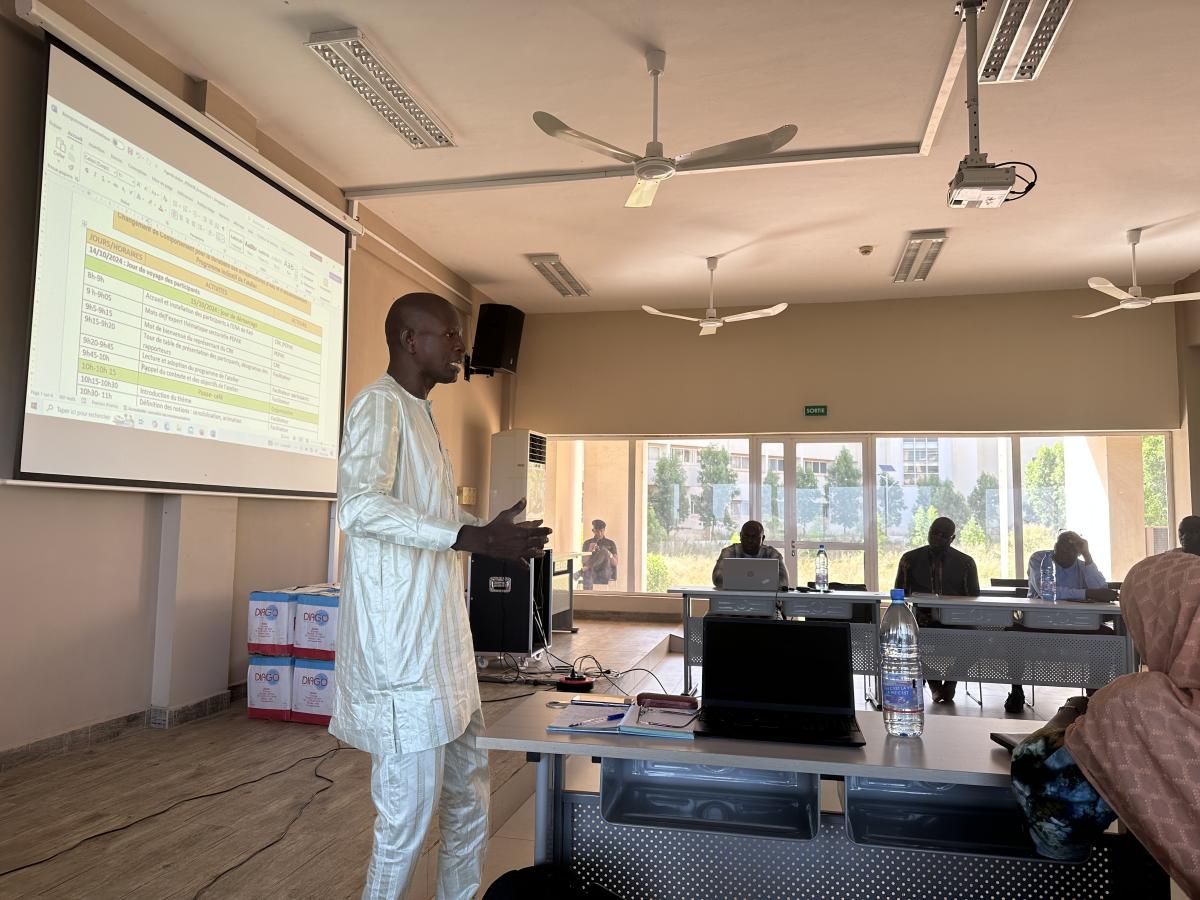
Mali: comment garantir un accès durable à l'eau potable ?
Nènè TRAORE | 30/10/2024
Le projet PEPAK accompagne les communautés vers une autonomie en matière de gestion de l'eau. Dans le contexte d'une demande en eau potable croissante, la région de Koulikoro au Mali a bénéficié d'un important projet d'amélioration de ses infrastructures. Le projet PEPAK a permis de doter de nombreux centres urbains et semi-urbains de systèmes d'adduction d'eau potable (AEP). Cependant, la pérennité de ces réalisations repose en grande partie sur la capacité des communautés à gérer ces nouveaux services. C'est dans ce cadre que des actions de renforcement des capacités ont été mises en œuvre.Le projet PEPAK, un levier pour l'accès à l'eau potable Le projet PEPAK a joué un rôle déterminant dans l'amélioration de l'accès à l'eau potable dans la région de Koulikoro. Grâce à la construction de nouvelles infrastructures et à la réhabilitation d'anciennes, de nombreuses populations ont vu leurs conditions de vie s'améliorer significativement. Si l'accès à l'eau est désormais une réalité pour un plus grand nombre, la question de la gestion durable de ces ressources se pose avec acuité. Pour assurer la pérennité des systèmes d'Adduction Eau Potable , il est essentiel de renforcer les capacités des acteurs locaux.Renforcement des capacités : un enjeu central pour la durabilité des infrastructuresAfin de garantir une gestion efficace et équitable des services d'eau, le projet PEPAK a mis en place des actions de formation à destination des gestionnaires des syndicats intercommunaux. Ces formations ont porté sur : Les techniques de sensibilisation et de communication : Pour encourager les populations à adopter de nouveaux comportements et à payer pour le service rendu. La gestion financière : Afin d'assurer une bonne gestion des ressources financières générées par les paiements. La maintenance des infrastructures : Pour prolonger la durée de vie des équipements. Les résultats encourageants Les premières évaluations montrent des résultats prometteurs. Les syndicats intercommunaux ont acquis de nouvelles compétences et sont mieux outillés pour gérer les systèmes d'AEP. Les communautés, quant à elles, commencent à prendre conscience de l'importance de payer pour ce service essentiel. Les enjeux de la pérennité Si les progrès sont encourageants, il reste encore du chemin à parcourir. La pérennité de ces acquis dépendra de plusieurs facteurs : Le maintien des efforts de sensibilisation : Il est essentiel de poursuivre les actions de communication pour ancrer durablement les nouveaux comportements. Le soutien des autorités locales : Les collectivités territoriales ont un rôle clé à jouer dans la mise en œuvre de politiques favorables à une gestion durable de l'eau. Le renforcement des capacités des acteurs locaux est une condition sine qua non pour assurer la gestion durable des systèmes d'AEP à Koulikoro. Le projet PEPAK a montré la voie, mais il est essentiel de poursuivre les efforts pour consolider les acquis et relever les nouveaux défis.
-
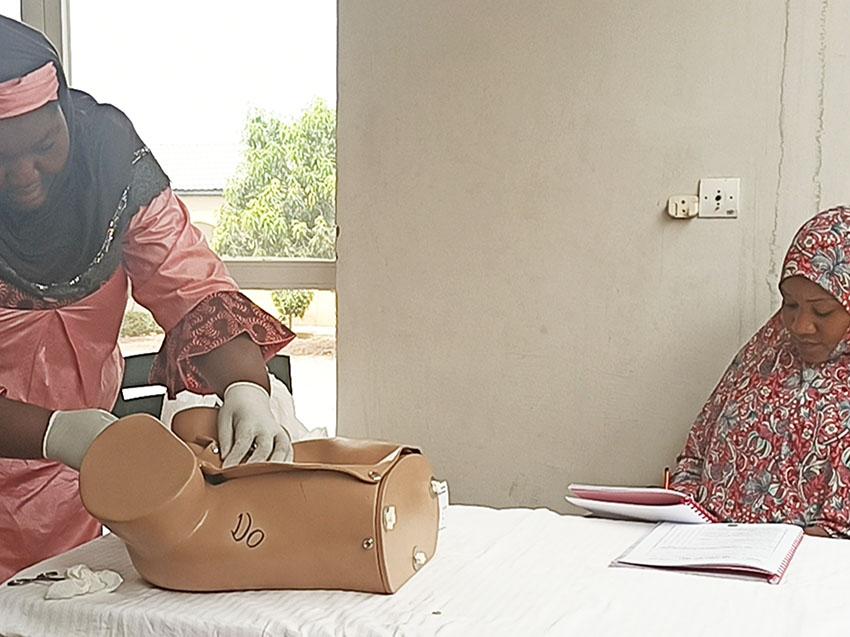
Niger : le coaching pour améliorer les services de santé dans les districts de Dioundou, Gaya et Gothèye
Halissa HASSAN DAN AZOUMI | 29/10/2024
Le gouvernement du Niger, à travers son Programme de Développement Sanitaire (PDS) 2017-2021, travaille activement pour réduire la mortalité des mères et des enfants. Une des actions principales consiste à améliorer la qualité des soins offerts dans les centres de santé. Pour cela, le Programme d'Appui aux Systèmes de Santé (PASS Sutura) appuie les Districts Sanitaires de Gaya et de Gothèye.L'une des stratégies utilisées pour améliorer les services de santé est le coaching des professionnels de santé. L'objectif ultime de cette approche, notamment dans le domaine de la santé de la reproduction, est d'autonomiser les agents de santé afin qu'ils puissent, à leur tour, former leurs pairs. Le coaching s’appuie sur des méthodes pratiques, incluant des formations sur mannequins et des démonstrations concrètes. Ces formations couvrent des thématiques essentielles telles que les soins obstétricaux et néonatals d’urgence, ainsi que la planification familiale. Grâce à cette approche, les agents de santé renforcent leurs compétences techniques tout en développant leur capacité à enseigner et à partager leur savoir-faire avec d'autres professionnels.Le coaching ne se limite pas à l’apprentissage technique. Il inclut des rencontres avec les communautés (leaders locaux, associations de femmes, etc.) pour les sensibiliser sur l’importance des soins rapides et de bonne qualité. Les formateurs aident aussi à analyser les données de chaque centre de santé, pour identifier les points à améliorer et mettre en place des solutions concrètes.Grâce à cette approche structurée et progressive, le coaching en santé de la reproduction offre une solution durable pour renforcer les capacités des agents de santé et garantir des soins de qualité en santé de la reproduction. En misant sur la formation, le suivi et la montée en compétences des professionnels de la santé, ce programme contribue à améliorer la qualité des services et à assurer la santé et le bien-être des populations des départements de Dioundiou,Gaya et Gothèye.
-
Agroécologie au Burkina Faso : Les Champs Écoles Paysans, moteurs de résilience et de productivité rurale
Geoffroy ZONGO | 29/10/2024
Du 18 au 21 septembre 2024, une équipe du Portefeuille Thématique Climat Sahel- Volet Burkina Faso (PTCS-BFA) a fait une tournée dans les régions du Centre-Est et du Plateau central pour un suivi des activités des Champs Ecoles paysans (CEP) . En collaboration avec le Consortium Solidar Suisse et l'Association Beéog-Neeré Agroécolgie, Enabel a mis en œuvre le Projet de promotion des pratiques agroécologiques et de valorisation des productions agricoles « Rilgré » dans 13 communes des régions du Centre-Nord, du Centre- Est et du Plateau central. Cette visite terrain réalisation avait pour objectif de constater les choses faites par les communautés dans le CEP, recueillir leurs préoccupations et les encourager pour la suite de la campagne agricole humide en cours. Au total, 10 CEP ont été visités par l'équipe du PTCS-BFA, conduite par Thérèse KONDOMBO, Chargée d'Intervention – Agroécologie et Restauration des Terres à Enabel au Burkina Faso. Selon elle, les CEP sont des lieux d'apprentissage et de formation pour les agricultrices, ils visent à améliorer leurs pratiques agricoles et à renforcer leur autonomie. En effet, les approches classiques de la vulgarisation agricole se sont révélées au cours des années souvent inefficaces pour répondre aux préoccupations essentielles et réelles des agriculteurs. Ces approches ont faiblement impliqué les producteurs ruraux dans les différentes actions à entreprendre. Les champs écoles paysans (CEP) constituent une excellente approche de l'apprentissage participatif sur le terrain. Ils mettent l'accent sur l'observation, la discussion, l'analyse, la prise de décision collective, la présentation et la mise en œuvre d'actions collectives et individuelles appropriées. Au cours de ces formations, les apprenants·es ont été sensibilisés·es aux pratiques agricoles respectueuses de l'environnement, telles que la gestion intégrée des cultures, la conservation des eaux et des sols, les biofertilisants, les biopesticides. L'objectif à long terme étant d'accompagner les producteurs·trices à augmenter leur rendement et la qualité de leurs produits grâce à des techniques adaptées et à une meilleure gestion de leurs ressources mais aussi à les sensibiliser sur l'importance des pratiques résilientes face aux effets du changement climatique, en les aidant à s'adapter aux nouvelles conditions environnementales. Des résultats forts appréciables par les acteurs·trices eux-mêmes Sur tous les sites visités, la délégation a pu constater de visu les différences entre les parcelles sur lesquelles les pratiques agroécologiques et de récupération des sols ont été expérimentées et celles sur lesquelles aucune pratique agricole innovante n'a été expérimentée. Le témoignage des producteurs en dit plus. Dans son CEP, Moussa Kaboré, agriculteur dans le village de Baka, Commune de Pouytenga a expérimenté du maïs et la différence est nette entre les deux parcelles pour la même variété semée le même jour. « Là où nous avons mis le bocachi et le koglzanga, vous voyez vous-mêmes que les épis sont plus gros et les tiges plus grandes que ceux de l'autre parcelle où nous n'avons pas appliqué ces bio-intrants », foi de Moussa Kaboré. Sur le plan économique également, les avantages de ces pratiques innovantes sont énormes. Elles permettent d'avoir un très bon rendement à moindre coût car les dépenses liées à la production sont considérablement réduites. En effet, toutes les matières utilisées pour la fabrication de ces bio-intrants sont locales et accessibles à des coûts très réduits. Valentin Tiraogo du village de Tiibin dans la Commune de Koupéla : « Nous avons retenu d'une formation qui nous permet désormais d'être autonomes et de produire nous-mêmes les bio-intrants avec des matériaux locaux et à moindre coût ». Guéswendé Compaoré renchérit : « Les années antérieures, je travaillais très dur mais avec moins de résultats. Grâce aux connaissances acquises, désormais je travaille encore plus intelligemment dans mon champ ». La réussite du champ de maïs de Guéswendé Compaoré attire toutes les curiosités, les convoitises et provoque des admirations dans le village de Foulgo, Commune de Saolgo. Le chef du village et plusieurs de ses sujets ont fait également le déplacement dans le CEP de Guéswendé pour voir les gros épis de maïs, admirant la bravoure et la réussite du champ et surtout apprendre de l'expérience de ce dernier. Les CEP jouent un rôle fondamental dans le développement rural et l'économie locale. Ils démontrent l'apprentissage pratique et renforcent les capacités des agriculteurs·trices à améliorer leurs rendements agricoles, leurs conditions de vie et celles de la communauté locale.
-
Journée mondiale de la santé mentale: Le Burundi met l'accent sur le bien-être au travail
Jean BIRONKWA | 29/10/2024
Le Burundi, à l'instar du reste du monde, a célébré la Journée Mondiale de la Santé Mentale 2024 à Kigamba, dans la Province de Cankuzo, le 25 octobre 2024, sous le thème : « Il est temps de donner la priorité à la santé mentale sur le lieu de travail ». Cette activité de sensibilisation et de mobilisation de la population sur les questions de santé mentale a été réalisée avec l'appui du Programme PASS-FBP3 Amagara mu Muryango, financé par l'@UEauBurundi, et du Programme NTUSIGARINYUMA, volet santé, financé par le Royaume de Belgique, tous deux mis en œuvre par @EnabeauBurundi. Le thème de cette année souligne le lien important entre la santé mentale et le travail. Les intervenants lors de cette cérémonie ont exhorté les employeurs, tant du secteur public que privé, à créer des environnements de travail sains et sécurisés, favorisant ainsi la protection de la santé mentale. Il est également crucial de lutter contre les facteurs nuisibles à la santé, tels que la stigmatisation, la discrimination, le harcèlement, et d'autres conditions de travail défavorables, qui peuvent avoir un impact négatif sur la santé mentale et le bien-être des individus.Une mauvaise santé mentale diminue les performances et augmente l'absentéisme. La stigmatisation et la discrimination empêchent les personnes souffrant de troubles mentaux de demander de l'aide ou de conserver un emploi. Les employeurs sont invités à réduire les obstacles liés à la santé mentale en favorisant la formation, la sensibilisation et la collaboration avec les prestataires en santé mentale.Cette cérémonie a également été une occasion de réaffirmer l'importance de poursuivre les actions visant à intégrer les soins de santé mentale dans les soins primaires à travers les structures de santé du pays. Cela permettra de renforcer l'accessibilité aux soins de santé mentale, y compris aux médicaments, pour tous les patients souffrant de troubles mentaux, en particulier ceux qui n'ont pas les moyens financiers suffisants pour les obtenir. Une troupe de théâtre, formée de jeunes comédiens, a présenté une pièce fortement appréciée par le public présent focalisée sur des thématiques de santé mentale dans la société comme les conséquences de la violence basée sur le genre, les ravages de la consommation de drogues chez les jeunes, l'influence des croyances sur la prise en charge des patients, etc. La pièce de théâtre est revenu sur le rôle important des prestataires de santé et des agents de santé communautaires dans le conseil et l'orientation des patients et des familles. La célébration de cette journée a été parrainée par la Première Dame du Burundi, Madame Angélique NDAYISHIMIYE. La cérémonie officielle s'est déroulée en présence du ministre de la Santé Publique et de la Lutte contre le Sida, du Représentant de l'Organisation Mondiale de la Santé au Burundi, de hauts responsables de certains ministères, des gouverneurs des provinces, de partenaires du secteur de la santé, ainsi que de la population de Kigamba.
-
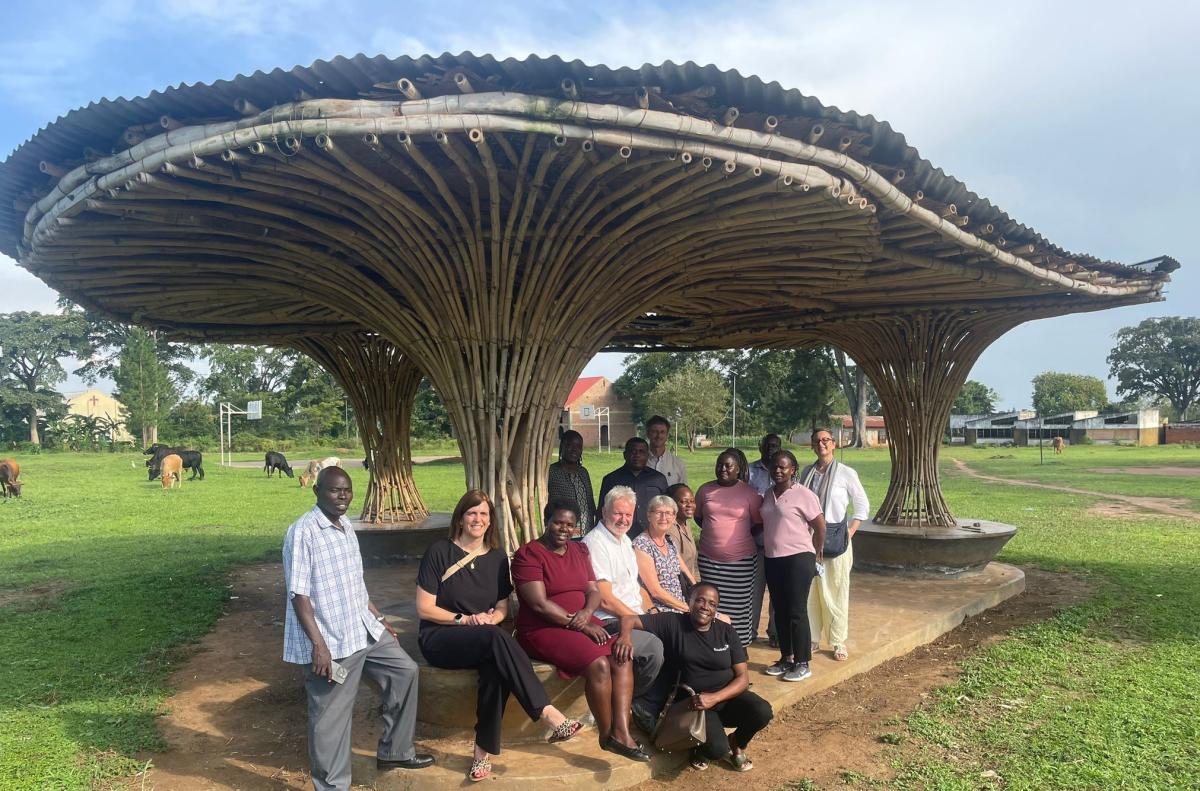
Enabel teams in Uganda and Tanzania embrace action research to enhance education
Proscovia GREGORY | 29/10/2024
From September 24 to 29, Enabel’s teams from Uganda and Tanzania came together at the National Teacher Training College in Kaliro, Uganda, for a specialized training on Action Research in Education. This training, led by Prof. Geert Kelchtermans and Dr. Ann Deketelaere of the Centre for Innovation and the Development of Teacher and School (CIDTS) at KU Leuven, was a significant step in strengthening our approach to innovation in educational practices. By equipping our teams with skills to assess the impact of their initiatives, action research provides a rigorous framework to refine strategies that address regional challenges while contributing to the wider discourse on effective education interventions. As one of our trainers noted, “Action research is a mindset as much as it is a method.” This mindset is essential in educational settings where ongoing reflection and critical questioning are paramount. By continuously evaluating our assumptions and adapting our strategies based on evidence, we create dynamic, responsive approaches that maximize our impact. Action research allows for this flexibility, grounding our practices in data-driven insights while helping us identify the best pathways forward. During the training, participants outlined six key questions that will steer our upcoming action research projects and address priority areas within Enabel’s educational programs: 1. What are the determining factors for the use of mobile digital toolkits in lower secondary schools in the Kigoma region? As we work to enhance digital access and learning, identifying the factors that affect the use of mobile digital toolkits is essential. This question will enable us to analyze how digital tools can most effectively contribute to learning outcomes in lower secondary schools, particularly in the Kigoma region. By better understanding these factors, we can optimize toolkit deployment to foster digital literacy and improve student engagement. 2. Does community outreach influence parents' attitudes towards education?Community involvement plays a pivotal role in shaping attitudes toward education, especially for marginalized groups. Through action research, we aim to measure how outreach initiatives impact parents’ support for their children’s education, particularly for girls, and evaluate their role in promoting sustained school attendance. 3. What is the effect of school-led projects on student access and retention in lower secondary education?School-led projects, such as the Menstrual Hygiene Management (MHM) initiatives, are critical in addressing barriers to education. These initiatives have already shown a positive effect on girls’ attendance. Through this research, we aim to assess how various school-led efforts influence student retention and contribute to a supportive educational environment. 4. How effective is our CPD delivery in practice?Investing in teachers is central to Enabel’s education initiatives. This research question focuses on evaluating our CPD program's impact on teaching practices and classroom dynamics. By examining the program’s effectiveness, we can refine training to better equip teachers with the skills needed to create inclusive and responsive classrooms. 5. How do “friends of education” contribute to the access and retention of girls, vulnerable boys, and young mothers?Community mentors, known as “friends of education,” play an influential role in supporting girls, vulnerable boys, and young mothers. This question explores how these advocates contribute to students’ educational journeys, helping them overcome obstacles and stay engaged in school. 6. How does our menstrual hygiene management (MHM) model affect attendance and classroom engagement of adolescent girl students?Access to MHM resources has proven to be transformative in keeping adolescent girls in school. By analyzing the model’s impact on attendance and engagement, we aim to refine approaches that empower girls to continue their education confidently and comfortably. The cross-border collaboration among Enabel’s WeLearn/WeTeach (Uganda), Wezesha Binti (Tanzania), and the Digital Innovation for Education scaling project (Uganda/Tanzania/Rwanda) in partnership with KU Leuven’s CIDTS is crucial for advancing these action research initiatives over the next two years. This partnership enhances our professional capacity to make informed, data-driven decisions that improve educational access and quality in East Africa. A key aspect of this initiative is fostering South-South knowledge exchange. Participants from Uganda, Tanzania, and Rwanda will act as critical friends, supporting each other in refining research approaches, learning from peer experiences, and scaling effective practices regionally. This model of mutual accountability and shared learning strengthens our collective impact, providing a foundation for sustainable, region-specific solutions. The outcomes of this work will guide policy adaptations, support the refinement of educational practices, and contribute to creating environments where all students, especially girls, vulnerable boys, and young mothers, can thrive. Our commitment to rigorous action research and regional collaboration underscores Enabel’s dedication to building inclusive, resilient education systems across East Africa, empowering the next generation of learners to realize their full potential.
-
Enabel teams in Uganda and Tanzania embrace action research to enhance education
Sharon IBENU | 29/10/2024
From September 24 to 29, Enabel’s teams from Uganda and Tanzania came together at the National Teacher Training College in Kaliro, Uganda, for a specialized training on Action Research in Education. This training, led by Prof. Geert Kelchtermans and Dr. Ann Deketelaere of the Centre for Innovation and the Development of Teacher and School (CIDTS) at KU Leuven, was a significant step in strengthening our approach to innovation in educational practices.By equipping our teams with skills to assess the impact of their initiatives, action research provides a rigorous framework to refine strategies that address regional challenges while contributing to the wider discourse on effective education interventions. As one of our trainers noted, “Action research is a mindset as much as it is a method.” This mindset is essential in educational settings where ongoing reflection and critical questioning are paramount. By continuously evaluating our assumptions and adapting our strategies based on evidence, we create dynamic, responsive approaches that maximize our impact. Action research allows for this flexibility, grounding our practices in data-driven insights while helping us identify the best pathways forward. During the training, participants outlined six key questions that will steer our upcoming action research projects and address priority areas within Enabel’s educational programs: 1. What are the determining factors for the use of mobile digital toolkits in lower secondary schools in the Kigoma region? As we work to enhance digital access and learning, identifying the factors that affect the use of mobile digital toolkits is essential. This question will enable us to analyze how digital tools can most effectively contribute to learning outcomes in lower secondary schools, particularly in the Kigoma region. By better understanding these factors, we can optimize toolkit deployment to foster digital literacy and improve student engagement. 2. Does community outreach influence parents' attitudes towards education?Community involvement plays a pivotal role in shaping attitudes toward education, especially for marginalized groups. Through action research, we aim to measure how outreach initiatives impact parents’ support for their children’s education, particularly for girls, and evaluate their role in promoting sustained school attendance. 3. What is the effect of school-led projects on student access and retention in lower secondary education?School-led projects, such as the Menstrual Hygiene Management (MHM) initiatives, are critical in addressing barriers to education. These initiatives have already shown a positive effect on girls’ attendance. Through this research, we aim to assess how various school-led efforts influence student retention and contribute to a supportive educational environment. 4. How effective is our CPD delivery in practice?Investing in teachers is central to Enabel’s education initiatives. This research question focuses on evaluating our CPD program's impact on teaching practices and classroom dynamics. By examining the program’s effectiveness, we can refine training to better equip teachers with the skills needed to create inclusive and responsive classrooms. 5. How do “friends of education” contribute to the access and retention of girls, vulnerable boys, and young mothers?Community mentors, known as “friends of education,” play an influential role in supporting girls, vulnerable boys, and young mothers. This question explores how these advocates contribute to students’ educational journeys, helping them overcome obstacles and stay engaged in school. 6. How does our menstrual hygiene management (MHM) model affect attendance and classroom engagement of adolescent girl students?Access to MHM resources has proven to be transformative in keeping adolescent girls in school. By analyzing the model’s impact on attendance and engagement, we aim to refine approaches that empower girls to continue their education confidently and comfortably. The cross-border collaboration among Enabel’s WeLearn/WeTeach (Uganda), Wezesha Binti (Tanzania), and the Digital Innovation for Education scaling project (Uganda/Tanzania/Rwanda) in partnership with KU Leuven’s CIDTS is crucial for advancing these action research initiatives over the next two years. This partnership enhances our professional capacity to make informed, data-driven decisions that improve educational access and quality in East Africa. A key aspect of this initiative is fostering South-South knowledge exchange. Participants from Uganda, Tanzania, and Rwanda will act as critical friends, supporting each other in refining research approaches, learning from peer experiences, and scaling effective practices regionally. This model of mutual accountability and shared learning strengthens our collective impact, providing a foundation for sustainable, region-specific solutions. The outcomes of this work will guide policy adaptations, support the refinement of educational practices, and contribute to creating environments where all students, especially girls, vulnerable boys, and young mothers, can thrive. Our commitment to rigorous action research and regional collaboration underscores Enabel’s dedication to building inclusive, resilient education systems across East Africa, empowering the next generation of learners to realize their full potential.
-
Enabel in Uganda moves to champion secondary education for every child through the 'My School, My Friend' campaign.
Sharon IBENU | 29/10/2024
Achieving equitable access to quality education for every child is a pressing challenge that demands immediate attention from everyone. In West Nile Uganda, the region is currently facing high rates of low enrolment in government-aided secondary schools, which reflects a deeper societal issue. With many families prioritizing the immediate economic contributions of their children over the long-term benefits of education, this short-sighted approach is not only undermining the future of children but also hampering the overall development of the community and the nation. In response to this critical situation, Enabel, through its WeTeach project, launched the “My School, My Friend” initiative, aimed to foster community engagement and raise awareness about the transformative power of secondary education. By emphasizing the importance of education, the initiative seeks to shift perceptions and encourage families to invest in their children's futures. Community leaders play a pivotal role in shaping attitudes and behaviours, and Enabel has positioned them as champions of education. These leaders are not only influential figures but also trusted voices within their communities. By engaging them in the outreach efforts, the project aims to create a ripple effect of positive change. Mr. Ronald Ndungu principal education officer in charge of West Nile echoed these sentiments, urging parents to take an active interest in their children's education. He noted that Community engagement is a critical activity, and schools need to continue doing it to reawaken the minds of leaders to encourage parents to take children to school. “I encourage secondary schools to interact with primary schools and as well undertake projects that focus on sensitization regarding drug abuse and introduce computers to primary learners to foster innovation.” Mr. Lawot Anthony, the District Education Officer in Kitgum and Mr. OVUA SHEM District inspector of schools in Madi-Okollo pointed out several socio-economic challenges contributing to low enrolment rates, including early marriages, teenage pregnancies, and high poverty levels. They both stressed the importance of awareness creation to combat these issues, saying, "We need to host radio talk shows with leaders and engage in dialogue with community and clan leaders.This approach aims to foster a supportive environment for education and encourage families to prioritize schooling" says Mr. Lawot The 'My School, My Friend' initiative is not merely about increasing enrollment; it seeks to change perceptions and build a culture of education. According to Ms. Clare Atuhaire, the WeTeach project Coordinator in West Nile, the "My School, My Friend" campaign is designed as an action research initiative to tackle these challenges head-on. By organizing school-based meetings and awareness campaigns, the project seeks to engage parents and local leaders in meaningful dialogue about the importance of secondary education. Mr. Okot Freddy, the headmaster of Omiya Anyima Seed Secondary School in Kitgum district, emphasized the effectiveness of community engagement, stating, "This initiative is effective, and when communities are engaged, the better." He also highlighted the urgent need for adequate teachers to support the growing demand for secondary education. Ms. Latigi Mary a parent from Lopur primary school in Kitgum district expressed a powerful sentiment: “Education is the key to a better future for our children. We must work together to ensure they have every opportunity to succeed.” This perspective summarizes the collective hope and determination of the community to uplift their children through education. As the communities’ rally towards this initiative, the question remains: Are we fully harnessing the potential of every child? The answer lies in our collective commitment to education, community engagement, and the belief that every child deserves the chance to excel.
-
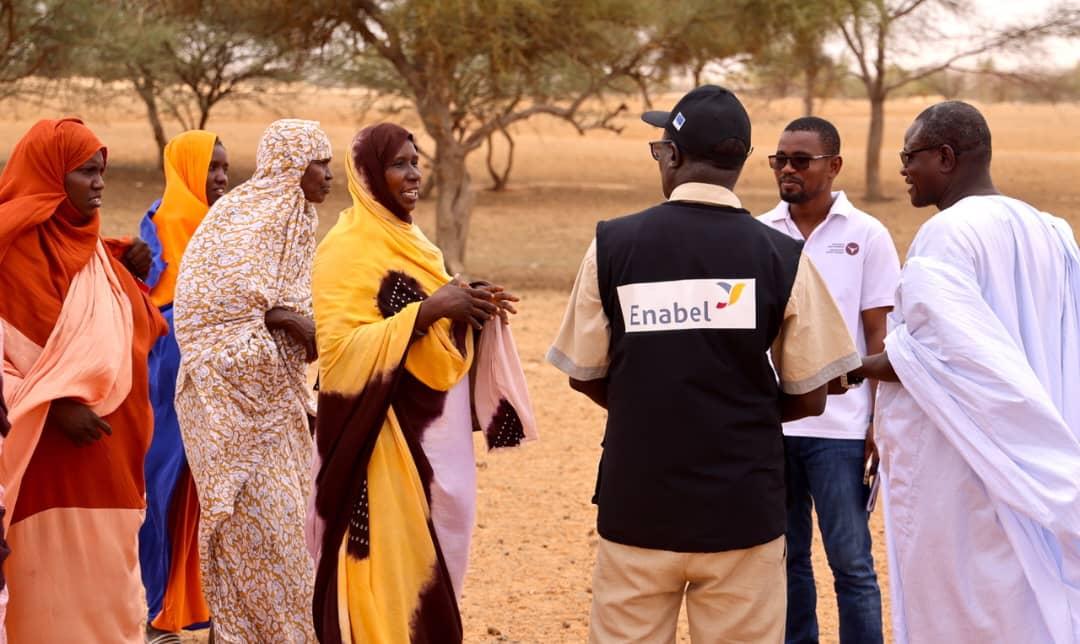
Améliorer l’accès au financement rural en Mauritanie : Enabel et l’Union européenne au service de la résilience
Aminata KANE | 28/10/2024
L’accès au financement en zones rurales est un levier indispensable au développement des filières agricoles et pastorales en Mauritanie. Dans cette optique, Enabel, l'Agence belge de développement, avec le soutien de l’Union européenne, a déployé le programme RIMFIL dans les wilayas d’Assaba, Guidimakha, Hodh El Gharbi et Hodh El Chargui. Ce programme s’engage à renforcer l’autonomie financière des populations rurales tout en structurant les filières agricoles et pastorales pour une résilience durable.À travers des subventions adossées au crédit, le programme a touché 19 175 personnes – dont 11 994 femmes (63 %) – dans les quatre wilayas. Ce soutien, conçu pour améliorer l’accès au financement, marque une avancée notable vers l’inclusion des femmes dans le développement économique rural et permet d’asseoir une plus grande autonomie des producteurs.Ces résultats posent les fondations d’un avenir plus résilient et autonome pour les filières agricoles et pastorales. En ouvrant des perspectives pour de nouvelles actions et collaborations, cet appui contribue durablement à l’accès au financement et à la structuration des filières, tout en renforçant la sécurité alimentaire et la croissance locale.
-
Appui aux juridictions pénales : 11 médecins légistes renforcent leurs capacités sur l’anthropologie médico-légale au Burkina Faso
Geoffroy ZONGO | 28/10/2024
Du 14 au 18 octobre 2024, Enabel en collaboration avec la Société Burkinabè de Médecine Légale (SO.BU.MEL) a organisé un atelier de formation des médecins légistes sur l’anthropologie médico-légale. Première du genre au Burkina Faso cette formation avait pour objectif de renforcer les compétences des médecins légistes sur l’anthropologie médico-légale afin de contribuer activement à la manifestation de la vérité et permettre la restauration de la dignité de la personne disparue. Cet atelier entre dans le cadre de la mise en œuvre du Projet d’Appui au Renforcement de la Justice pour lutter contre l’Impunité (PARJI) débuté en 2021. Le PARJI est financé par l’Union européenne et prend fin en octobre 2024. La formation des médecins légistes s’inscrit dans l’atteinte de l’objectif spécifique 2 du PARJI notamment le renforcement du système judiciaire à travers certains chantiers prioritaires tels que le renforcement des capacités des services de médecine légale dans le but de répondre aux besoins des justiciables et des acteurs judiciaires. Discipline qui intervient dans la sphère judiciaire pour apporter des réponses scientifiques dans la quête de vérité dans le cadre de certains crimes et délits contre les personnes, notamment les crimes de sang, les agressions sexuelles, les violences basées sur le genre, en somme toutes les atteintes à l’intégrité physique des personnes, la médecine légale est plus qu’une nécessité pour le Burkina Faso. En effet, la situation sécuritaire que vit le pays, caractérisée par les attaques terroristes avec son lot de victimes (civiles ou militaires) a accru les interventions de la médecine légale dans la conduite des procédures judiciaires aussi bien devant les juridictions pénales que civiles. « Cela démontre à nouveau, si besoin en était que cette discipline prend de plus en plus de l’importance dans la conduite des dossiers en matière pénale et mérite donc une attention particulière. C’est pourquoi, Enabel et l’Union européenne, à travers le PARJI, n’ont pas hésité un seul instant à accompagner la présente activité. » dixit Julie VAN DER SMISSEN, Programme Manager à Enabel au Burkina Faso lors de son allocution à la cérémonie de clôture de la formation. De façon spécifique, les 11 apprenants ont acquis des connaissances dans plusieurs domaines de l’anthropologie médico-légale. Ils ont appris entre autres : l’identification reconstructive du squelette et des ossements, l’identification comparative en cas de découverte d’un squelette, la détermination des circonstances de survenue et de la cause de la mort en cas de découverte d’un squelette et la rédaction du rapport d’expertise d’anthropologie médico-légale. Les exercices pratiques et les partages d’expériences qui ont meublé ces 5 jours de formation ont rendus encore plus opérationnels ces 11 médecins légistes, tous·tes membres de la SO.BU.MEL. « Je peux vous certifier qu’au sortir de cette formation, nous sommes mieux outillés pour répondre aux sollicitations de la justice en matière d’anthropologie médico-légale », foi de Dr DOUDOULGOU Béraré, médecin légiste au Centre Hospitalier Universitaire (CHU) de Bogodogo et porte-parole des impétrants. Pour les acteurs·ices de la justice, la médecine légale est plus que nécessaire pour la découverte de la vérité. « En matière de décès et de découverte de cadavre, le code de procédure pénale institue la possibilité pour le procureur du Faso en vue de rapporter la preuve dans la procédure de requérir toute expertise technique ou scientifique. En la matière, la médecine légale est en mesure de nous offrir des preuves scientifiques », confirme Lafama Prosper Thiombiano, procureur du Faso près le tribunal de grande instance Ouaga II qui confirme collaborer étroitement avec les médecins légistes de la SO.BU.MEL sur plusieurs dossiers dans son parquet. Cet appui scientifique des médecins légistes dans la quête de vérité dans les procédures judiciaire, contribue à rendre plus efficacement la justice et ainsi lutter contre le sentiment d’impunité.
-
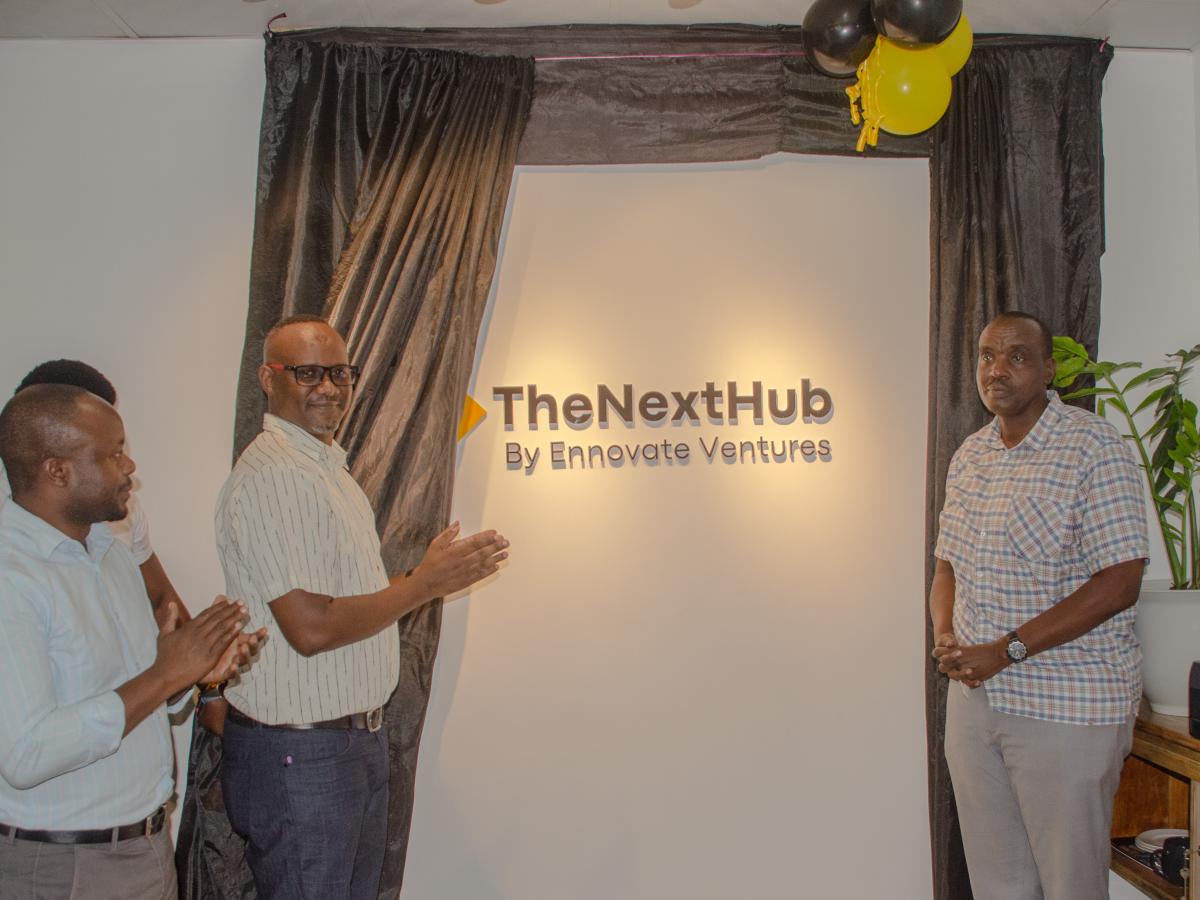
Enabel and Government collaboration to mint digital entrepreneurs in Mwanza
Mkama MWIJARUBI | 28/10/2024
Nuru Michael, in her late twenties, enjoys her participation in the first cohort of trainees at Mwanza city’s first open digital innovation hub, thanks to Enabel’s collaboration with Ennovate Ventures and the government.“I’m excited to get an opportunity to participate in a guided learning about digital business; I’ll study digital marketing. I’m eager to learn and prove that girls can do what they need with technology. My success will prove to other girls that they can be good in technology as well,” she said. With funding from the European Union, Enabel provided Ennovate Ventures, a business development company, a grant to run a two year initiative to empower youth’s as competitive entrepreneurs in the digital ecosystems. The upbeat tone reflected on the Senior Mwanza Regional economist Patrick Karangwa, who officially launched the lab on behalf of the Regional Commissioner on 15 October 2024. “We hope that this centre will help facilitating advancement of personal growth for youth and their families. Technology is critical for development. Our youth need technology skills because Tanzania must benefits from integrating in international markets,” said Patrick Karangwa. This is the first open digital innovation lab in Mwanza, giving youth access to internet, online courses that aim to make them tech savvy to take on challenges of the digital economy. Tanzania’s urban population, currently estimated at 30% of its overall population is expected to reach 50% around 2040. While the cities in Tanzania offer opportunities for job creation, innovation and inclusion the promises is tainted with low level of professionalization of business, limited access to technology, lack of financial literacy among other limitations. “Through Ennovate Ventures, Enabel supports effort to transform youth into technology savvy entrepreneurs. Youth entrepreneurs, especially girls, face challenges including capital, business ideas, and markets. One of the solutions harness mobile technology for business,” said Thomas Ekaruwa, TVET Advisor with the INCLU-CITIES project. The two year project, INCLU-CITIES is part of the European Union's bigger program, dubbed SASA , that intends to create wealth and enhance the quality of life for people – in particular women and youth – of the cities of Mwanza, Tanga and Pemba through improving conservation of the environment and creating decent jobs. It is expected that by the end of the project a particular number of youths, like Nuru, in Mwanza will have valuable skills to the labour market and many more will be capable to venture on their own as business persons.
-
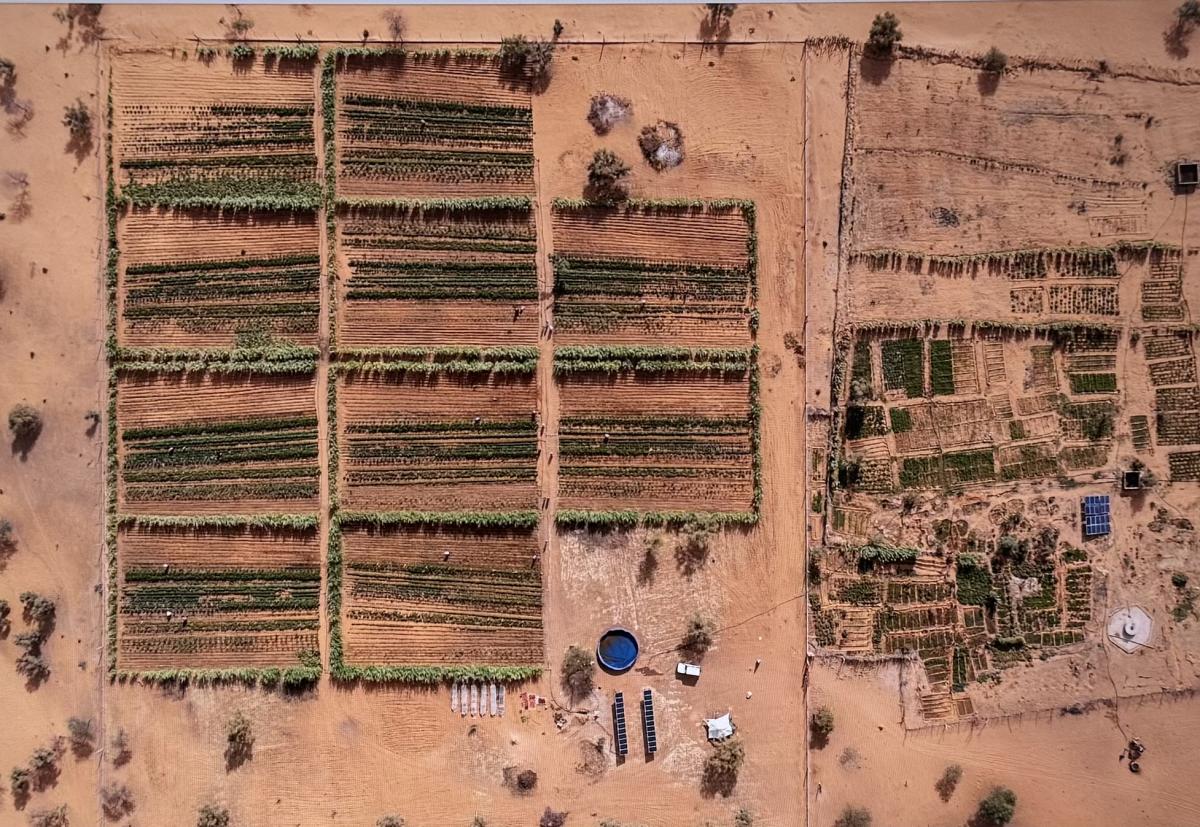
295 organisations unies pour la résilience agricole en Mauritanie
Aminata KANE | 25/10/2024
Dans le cadre du programme RIMFIL financé par l'Union européenne et mis en œuvre par Enabel, 295 organisations, dont des coopératives et des bénéficiaires individuels, ont reçu des subventions pour développer trois filières stratégiques : le maraîchage, la décrue et la production laitière. Ces subventions visent à renforcer la résilience des communautés rurales et à promouvoir des moyens de subsistance durables dans quatre régions du sud de la Mauritanie : Assaba, Guidimakha, Hodh El Gharbi (HEG) et Hodh El Chargui (HEC).Répartition des bénéficiaires par filièreLes investissements se sont concentrés sur les trois filières prioritaires du programme, répondant aux besoins et au potentiel de chaque région :Maraîchage : 104 organisations ont misé sur cette filière, réparties principalement dans les régions d’Assaba (40 bénéficiaires) et de Guidimakha (39 bénéficiaires), pour valoriser les cultures diversifiées et améliorer la sécurité alimentaire locale.Décrue : La filière décrue a attiré le plus grand nombre de bénéficiaires avec 110 organisations, dont 50 dans l’Assaba et 28 dans le Guidimakha, permettant aux agriculteurs de maximiser les récoltes durant la saison des pluies et de diversifier leurs productions.Lait : 81 bénéficiaires, avec une forte concentration dans Guidimakha (35) et Assaba (19), se sont tournés vers cette filière pour améliorer la production laitière, valoriser les élevages et créer de nouvelles opportunités de revenus.Un soutien pour dynamiser les économies localesLa répartition régionale des bénéficiaires témoigne des dynamiques locales et des choix stratégiques des agriculteurs et éleveurs. En Assaba, 109 bénéficiaires ont investi dans les trois filières, suivis de Guidimakha avec 102 bénéficiaires. Les Hodh El Gharbi et Hodh El Chargui comptent respectivement 43 et 41 bénéficiaires. En ciblant ces régions vulnérables, le programme RIMFIL contribue à l'essor des économies locales et au renforcement de la sécurité alimentaire dans les zones rurales. Ce soutien offre aux producteurs les moyens d’optimiser leurs pratiques, d’accroître leur productivité et d’adopter des techniques plus résilientes face aux défis climatiques et aux contraintes économiques.
-
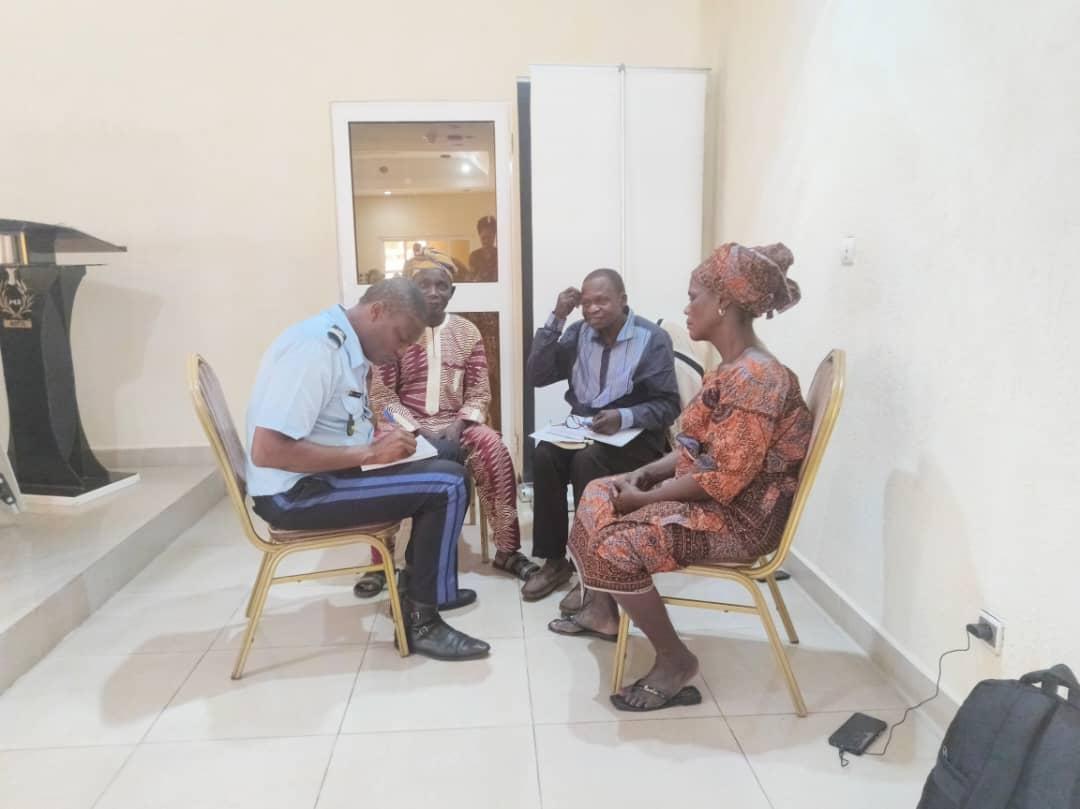
Comités Zéro VBG : EQUITE II renforce la collaboration avec les autorités locales à Savè
Reece-hermine ADANWENON | 24/10/2024
Les Comités Zéro VBG, en collaboration avec les commissaires de police et les responsables des Guichets Uniques de Protection Sociale (GUPS), se sont réunis le 17 septembre à Dassa pour réfléchir à des actions synergiques au niveau communautaire afin de lutter efficacement contre les violences basées sur sur le genre (VBG) . Dans le cadre de la mise en œuvre du projet EQUITE 2, qui succède au projet EQUITE I , l'objectif principal est de réduire les inégalités de genre en santé en tenant compte des besoins spécifiques des femmes et des hommes en matière de santé sexuelle et reproductive (SSR), y comprend les VBG et les maladies non transmissibles (MNT). Le projet s'engage à poursuivre les activités de prévention et de prise en charge des VBG initiées lors du projet EQUITE. Pour ce faire, une mission de suivi des Comités Zéro VBG a été effectuée, générant plusieurs recommandations qui ont conduit à l'organisation d'une réunion impliquant les comités Zéro VBG, le GUPS et les commissariats de la commune de Savè. Objectifs de cette séance :- présenter l'approche des Comités Zéro VBG aux officiers de police judiciaire (OPJ) et aux équipes d'intervention genre (EI Genre); - mettre en réseau les Comités Zéro VBG avec les nouveaux commissaires;- discuter de l'appui que les GUPS et les commissariats peuvent apporter aux Comités Zéro VBG;- suivre les activités des Comités Zéro VBG;- partager les expériences et les bonnes pratiques entre les Comités Zéro VBG.
-
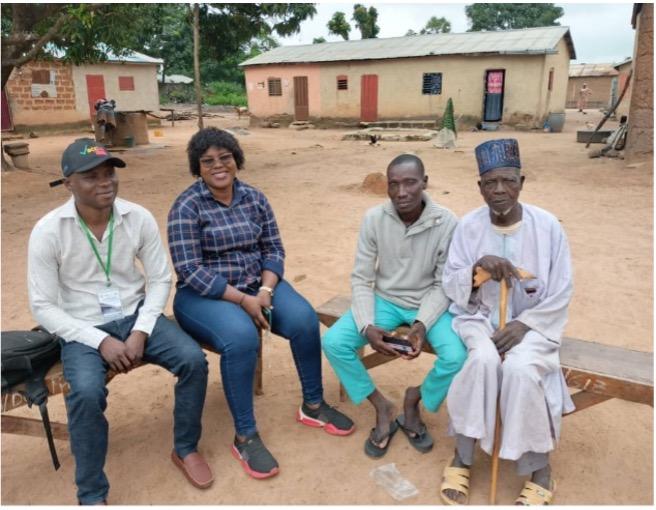
Enabel à travers la phase II du P@SRIS renforce la lutte contre les violences basées sur le genre dans le Borgou
Reece-hermine ADANWENON | 24/10/2024
La deuxième phase du Projet d'Appui à la Santé Sexuelle et Reproductive et à l'Information Sanitaire (P@SRIS-2) continue son engagement dans la lutte contre les violences basées sur le genre (VBG), et plus particulièrement les violences sexuelles, dans ses zones d'intervention. Ce projet vise entre autres à renforcer la collaboration multisectorielle et à responsabiliser les communautés dans la gestion des cas de VBG, afin d'encourager une action collective et communautaire.L'expérience du P@SRIS-1, qui a mis en place des comités de veille VBG dans les départements du Couffo et de l'Atlantique, a démontré l'efficacité de cette approche. Ces comités ont permis d'identifier, de signaler et d'accompagner les victimes de VBG avec des résultats encourageants. Avec le P@SRIS-2, il est essentiel d'adapter cette démarche au contexte spécifique du département du Borgou, nouvellement intégré au projet, pour mener des actions efficaces en synergie avec tous les partenaires de la zone sanitaire de Parakou-N'dali .Du 9 au 13 septembre 2024, un état des lieux a été réalisé dans 31 villages du Borgou, sélectionnés en fonction de la fréquence des cas de VBG. Cette évaluation vise à recenser les organisations communautaires locales luttant contre les VBG, ainsi que les partenaires qui les soutiennent. Elle permettra également d'analyser les stratégies et activités en cours, les résultats obtenus, la collaboration avec d'autres acteurs, ainsi que les obstacles et besoins à adresser.Les résultats de cette évaluation serviront de base pour orienter les stratégies et actions que le P@SRIS-2 mettra en œuvre dans le Borgou, contribuant ainsi à une meilleure sensibilisation et à l'éradication des violences basées sur le genre dans la région.
